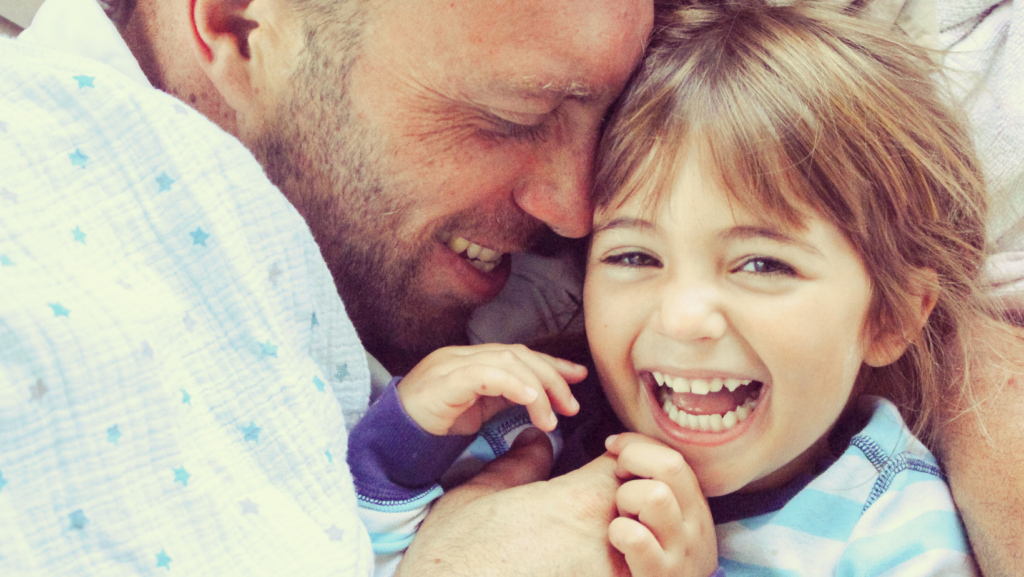Choosing the right parenting style can feel overwhelming for both new and experienced parents. With numerous approaches and conflicting advice available it’s natural to question which method will work best for your family. Understanding different parenting styles and their impact on child development is crucial for making informed decisions.
Every parent wants to raise happy healthy and well-adjusted children but the path to achieving this goal isn’t always clear. From authoritative to permissive styles each approach comes with its own set of benefits and challenges. By asking the right questions parents can better understand their current parenting methods and identify areas where they might want to make adjustments to better support their children’s growth and development.
Questions to Ask About Parenting Styles
Parenting styles shape children’s emotional development social skills through distinct approaches to discipline communication discipline. Research identifies four primary parenting styles each with unique characteristics impacts on child development.
Authoritative vs Authoritarian Parenting
Authoritative parenting combines high expectations with emotional support warmth. Parents set clear boundaries create consistent rules while maintaining open dialogue with their children. They explain decisions provide reasons for consequences encourage independence within established limits.
Authoritarian parenting focuses on strict obedience rigid rules without flexibility. These characteristics distinguish the two styles:
| Aspect | Authoritative | Authoritarian |
|---|---|---|
| Communication | Two-way dialogue | One-way directives |
| Rules | Flexible with explanation | Rigid without discussion |
| Emotional Support | High warmth responsiveness | Low emotional engagement |
| Discipline Method | Natural consequences | Punitive measures |
| Child Independence | Encouraged within limits | Limited or discouraged |
Permissive and Uninvolved Parenting
Permissive parenting creates a lenient environment with minimal rules boundaries. Parents avoid confrontation set few expectations make limited demands on their children. Common patterns include:
- Treating children as equals in decision-making
- Setting inconsistent or no consequences for misbehavior
- Prioritizing friendship over parental guidance
- Providing excessive freedom without structure
Uninvolved parenting demonstrates minimal engagement in children’s lives activities. Key characteristics include:
- Limited emotional support or nurturing
- Basic needs met without additional involvement
- Absence of rules structure guidance
- Minimal communication about daily activities decisions
- Lack of interest in children’s academic social development
Research from the American Psychological Association indicates children raised by uninvolved parents often experience challenges with emotional regulation self-esteem compared to other parenting styles.
Evaluating Your Current Parenting Approach
Self-reflection enables parents to understand their current parenting methods and identify areas for growth. Regular evaluation of parenting practices helps create positive family dynamics and supports children’s developmental needs.
Self-Assessment Questions
- Consider daily responses to challenging behaviors (e.g., tantrums, defiance, sibling conflicts)
- Examine communication patterns during family discussions
- Assess consistency in setting and enforcing boundaries
- Review emotional reactions to children’s mistakes or failures
- Evaluate the balance between discipline and nurturing
- Monitor time spent in meaningful interactions with children
- Analyze methods used for teaching responsibility and independence
- Reflect on responses to children’s achievements and disappointments
Identifying Your Strengths and Weaknesses
- Clear communication of expectations
- Regular family routines and structures
- Consistent disciplinary methods
- Active involvement in children’s activities
- Emotional availability during difficult moments
- Managing stress during challenging situations
- Setting appropriate age-based boundaries
- Balancing work and family time
- Maintaining patience in repetitive scenarios
- Following through with stated consequences
- Adapting responses to each child’s unique needs
- Implementing positive reinforcement techniques
- Creating opportunities for independent decision-making
| Parenting Aspect | Self-Rating Scale | Impact on Child |
|---|---|---|
| Communication | 1-5 | Development of social skills |
| Consistency | 1-5 | Sense of security |
| Emotional Support | 1-5 | Self-esteem building |
| Boundary Setting | 1-5 | Self-discipline growth |
| Quality Time | 1-5 | Attachment formation |
How Your Childhood Influences Your Parenting
Childhood experiences shape parenting behaviors through learned patterns, reactions, and emotional responses. Parents often unconsciously recreate their upbringing or actively work to parent differently from their own experiences.
Breaking Negative Patterns
Early childhood experiences create neural pathways that influence adult behavior patterns in parenting situations. Parents who experienced harsh discipline or emotional neglect demonstrate these impacts through:
- Recognizing triggered responses from past experiences during challenging parenting moments
- Identifying automatic reactions that mirror their own parents’ behaviors
- Spotting communication patterns that reflect childhood family dynamics
- Noticing emotional responses that stem from unresolved childhood experiences
- Observing discipline methods that mirror their own upbringing
Breaking these patterns involves:
- Recording specific triggering situations in a parenting journal
- Practicing new responses to common child behaviors
- Implementing 30-second pauses before reacting to challenging situations
- Establishing alternative discipline strategies that differ from experienced childhood methods
- Creating clear boundaries based on current parenting knowledge rather than past experiences
Embracing Positive Traditions
Positive childhood experiences provide valuable foundations for effective parenting approaches. Parents can strengthen family bonds by:
- Continuing family rituals that created positive memories
- Adapting cultural practices that align with current values
- Maintaining beneficial routines learned from caregivers
- Incorporating successful communication strategies experienced in childhood
- Preserving meaningful holiday traditions that foster connection
- Regular family meals with focused conversation time
- Seasonal celebrations that strengthen family identity
- Bedtime routines that promote emotional security
- Weekend activities that encourage quality time
- Special occasions that mark family milestones
- Cultural practices that connect generations
Impact of Parenting Styles on Child Development
Parenting styles create lasting effects on children’s psychological development and behavioral patterns. Research shows direct correlations between specific parenting approaches and children’s outcomes in various developmental areas.
Emotional Well-being
Different parenting styles shape children’s emotional regulation abilities and self-esteem development. Authoritative parenting promotes higher emotional intelligence through:
- Validating children’s feelings while teaching appropriate expression
- Creating safe spaces for emotional discussions
- Maintaining consistent boundaries with emotional support
- Modeling healthy coping strategies
- Providing constructive feedback instead of harsh criticism
Children raised under authoritarian or permissive styles often experience:
- Difficulty managing strong emotions
- Lower self-confidence levels
- Increased anxiety or aggressive tendencies
- Challenges in expressing feelings appropriately
- Higher stress responses to criticism
Social Skills and Relationships
Parenting approaches directly influence children’s ability to form healthy relationships and navigate social situations. Key social development outcomes include:
| Parenting Style | Social Impact on Children |
|---|---|
| Authoritative | Strong communication skills, empathy, healthy boundaries |
| Authoritarian | Difficulty with peer relationships, social anxiety |
| Permissive | Poor conflict resolution, dependency issues |
| Uninvolved | Limited social skills, trust issues |
Children from authoritative households demonstrate:
- Enhanced problem-solving abilities in social settings
- Better cooperation with peers
- Stronger leadership qualities
- Improved conflict resolution skills
- Higher levels of empathy
- Guided peer interactions
- Family communication patterns
- Structured social activities
- Collaborative problem-solving
- Age-appropriate autonomy
Creating a Balanced Parenting Strategy
A balanced parenting strategy combines clear boundaries with emotional support to foster healthy child development. This approach integrates elements from effective parenting styles while maintaining consistency in daily interactions.
Setting Healthy Boundaries
Establishing healthy boundaries creates a secure framework for children’s growth through:
- Implementing age-appropriate rules (e.g., bedtime schedules, screen time limits)
- Creating predictable daily routines (e.g., homework time, family meals)
- Setting clear consequences for specific behaviors (e.g., loss of privileges for breaking rules)
- Maintaining consistent expectations across different situations
- Adjusting boundaries as children develop new skills or responsibilities
Key factors in boundary enforcement:
| Boundary Component | Implementation Strategy | Expected Outcome |
|---|---|---|
| Consistency | Apply rules equally | Increased security |
| Flexibility | Adapt to child’s age | Better compliance |
| Communication | Express expectations clearly | Reduced confusion |
| Follow-through | Enforce stated consequences | Enhanced trust |
Building Strong Communication
Effective parent-child communication forms through specific practices:
- Using active listening techniques (e.g., maintaining eye contact, repeating key points)
- Expressing emotions with “I” statements (e.g., “I feel worried when…”)
- Creating designated times for open dialogue (e.g., family meetings, bedtime talks)
- Validating feelings before addressing behaviors
- Encouraging two-way conversations rather than lectures
- Schedule regular one-on-one time with each child
- Practice non-judgmental responses to children’s concerns
- Share appropriate personal experiences to build connection
- Ask open-ended questions about their thoughts feelings
- Model respectful communication in all family interactions
Continous Journey
Choosing the right parenting style is a journey of continuous learning and adaptation. Parents who take time to understand their approach and its impact on their children are better equipped to create positive family dynamics.
By asking thoughtful questions about their parenting methods parents can identify areas for growth and maintain strategies that work well for their family. The key lies in finding a balance between setting boundaries and providing emotional support while staying true to their values and their children’s needs.
Remember that parenting styles can evolve and there’s no one-size-fits-all approach. What matters most is maintaining open communication evaluating methods regularly and adjusting strategies as children grow and family dynamics change.





